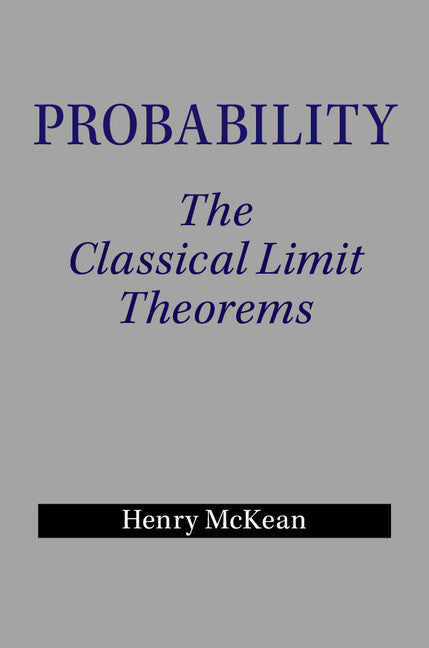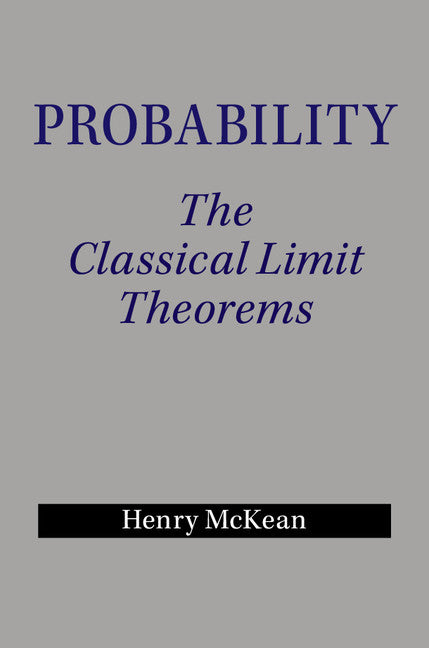Freshly Printed - allow 8 days lead
Couldn't load pickup availability
Probability
The Classical Limit Theorems
A leading authority sheds light on a variety of interesting topics in which probability theory plays a key role.
Henry McKean (Author)
9781107053212, Cambridge University Press
Hardback, published 27 November 2014
488 pages, 122 b/w illus. 260 exercises
22.9 x 15.2 x 2.7 cm, 0.88 kg
'The scope is wide, not restricted to 'elementary facts' only. There is an abundance of pretty details … This book is highly recommendable …' Jorma K. Merikoski, International Statistical Review
Probability theory has been extraordinarily successful at describing a variety of phenomena, from the behaviour of gases to the transmission of messages, and is, besides, a powerful tool with applications throughout mathematics. At its heart are a number of concepts familiar in one guise or another to many: Gauss' bell-shaped curve, the law of averages, and so on, concepts that crop up in so many settings they are in some sense universal. This universality is predicted by probability theory to a remarkable degree. This book explains that theory and investigates its ramifications. Assuming a good working knowledge of basic analysis, real and complex, the author maps out a route from basic probability, via random walks, Brownian motion, the law of large numbers and the central limit theorem, to aspects of ergodic theorems, equilibrium and nonequilibrium statistical mechanics, communication over a noisy channel, and random matrices. Numerous examples and exercises enrich the text.
Preface
1. Preliminaries
2. Bernoulli trials
3. The standard random walk
4. The standard random walk in higher dimensions
5. LLN, CLT, iterated log, and arcsine in general
6. Brownian motion
7. Markov chains
8. The ergodic theorem
9. Communication over a noisy channel
10. Equilibrium statistical mechanics
11. Statistical mechanics out of equilibrium
12. Random matrices
Bibliography
Index.
Subject Areas: Computer networking & communications [UT], Probability & statistics [PBT], Differential calculus & equations [PBKJ], Calculus & mathematical analysis [PBK], Information theory [GPF]


